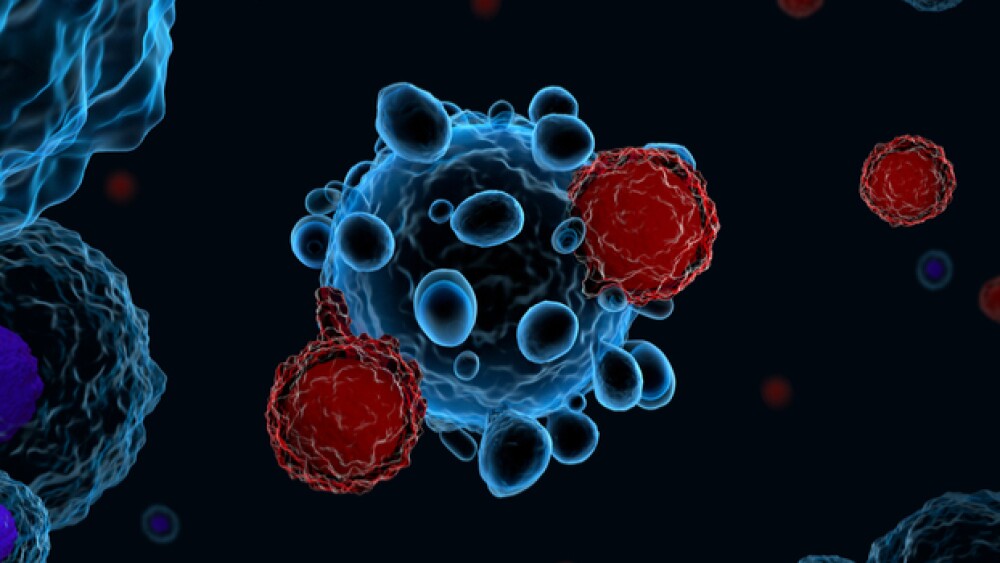Immuno-oncology comes pretty close to being a miracle cure for certain types of cancer. But it’s not perfect, and a recently reported isolated case demonstrates that there are risks.
Original publication date: October 3, 2018
Immuno-oncology comes pretty close to being a miracle cure for certain types of cancer. Therapeutics like Novartis’ Kymriah have revolutionized some aspects of cancer care. But they’re not perfect, and a recently reported isolated case demonstrates that there are risks. It was published the same day that the Nobel Prize was awarded to researchers involved in immuno-oncology therapeutic developments, highlighting the promise and perils of the field.
Immuno-oncology, and CAR-T, is a process where immune cells are taken from the cancer patient, sent to a laboratory and engineered to attack the specific cancer. They are then reinfused into the patient, a kind of “living drug,” where they grow and attack the cancer. They come with certain risks. Primarily those revolve around some incidences of neurotoxicity and the even more common cytokine release syndrome (CRS). However, physicians have developed ways to manage and prevent these side effects.
Now, a single case described in the journal Nature Medicine presents another potential problem, although it’s so far extremely rare.
In the case, a 20-year-old male with B-cell acute lymphoblastic leukemia was treated with a form of CAR-T therapy in a clinical study with the University of Pennsylvania. He initially went into complete remission. However, nine months later he relapsed and ultimately died.
The New York Times writes, “Once he relapsed after the CAR-T treatment, tests on his blood indicated that all of his leukemia cells carried genetic changes from the treatment, and all the cells had identical traits indicating that they originated from the same cell. The finding stunned university researchers, who said that of hundreds of patients who have received the therapy, the case was the only one known in which a leukemia cell was transformed and caused a lethal relapse.”
What appears to have happened was a single “rogue cell” that was genetically altered by the therapy, survived the treatment and continued to grow and divide. When the white blood cells are “captured” in the initial process, some cancer cells are collected along with them. And the process of genetically modifying the immune cells can also genetically modify the cancer cells if they aren’t weeded out before. They typically die on their own or are attacked by the reprogrammed T-cells. But because of the genetic modifications, it was “immune” to the immune cells programmed to attack the cancer.
Marco Ruella, an assistant professor at the University of Pennsylvania’s medical school and lead author of the report, told The New York Times, “It is exceptionally rare. But it warrants close monitoring of patients, and improvement of the manufacturing process.”
Novartis, which licensed the University of Pennsylvania technology to develop Kymriah, appears to be distancing itself from this incident. A company spokeswoman, Julie Masow, told The New York Times that in this particular case, the cells used to treat the patient were engineered at the University of Pennsylvania, not by Novartis, and that Novartis uses a different manufacturing process. Novartis has a number of steps in its immuno-oncology process that eliminates leukemia cells. It also has launched a registry to monitor Kymriah patients for 15 years post-treatment.
Although the researchers are not completely sure what happened, it appears that the virus, CAR lentivirus, which is used in the process, entered a leukemia cell. Health Medicine Net writes, “The researchers believe the presence of CAR on the leukemia cell acted as a disguise, masking the CDF19 which would give away that it’s a cancer cell. Safely hidden, this one rogue cell was free to ravage the body of the patient, who was part of a Penn-sponsored clinical trial which was completed in 2016.”
It’s not clear if the case was the result of a glitch in the university’s process, or related to the patient’s unique cancer—probably both. The patient had very advanced leukemia that had relapsed three times before.
The 2018 Nobel Prize in Medicine was awarded Monday to James Allison with the MD Anderson Cancer Center and Tasuku Honjo of Kyoto University. Shortly after Allison was informed of the joint award, he gave a speech expressing his thanks, but also calling for more “basic research” into these therapies to better understand how to avoid side effects.
Ruella agrees, telling Health Medicine Net, “Immunotherapy is very powerful but we are still in the early stages. We learn from the wins but we also learn from the losses.”





